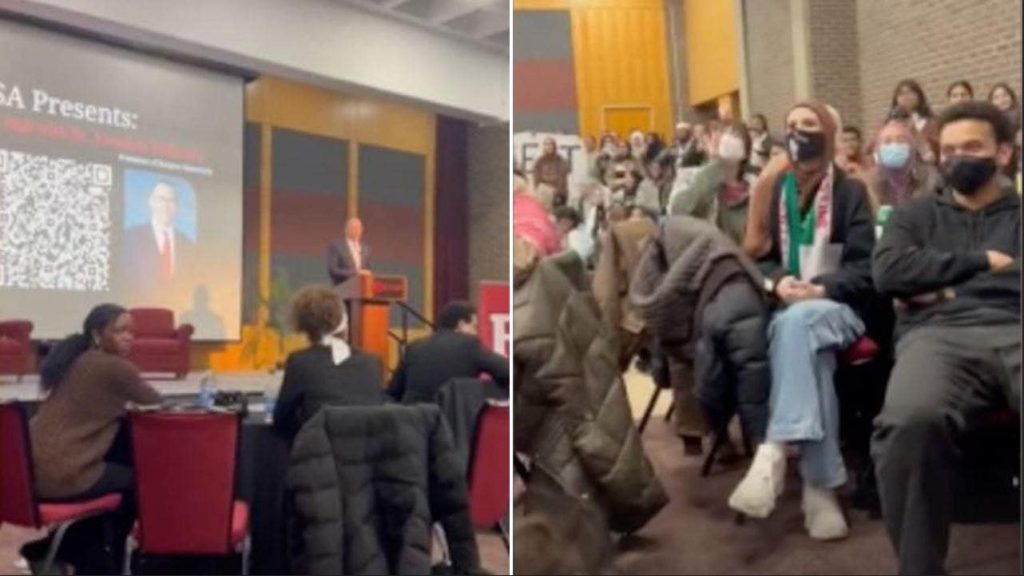A recent incident at Rutgers University involving pro-Palestinian protesters interrupting a town hall meeting has left Jewish students feeling unsafe on campus. During the event, protesters chanted anti-Israel slogans and forced the meeting to end early. Jewish students were ushered out by police through the back door for safety. The school had two BDS referendums up for a vote on severing ties with Tel Aviv University and divesting from anything connected to Israel. Despite concerns from students about potential antisemitic behavior, the administration decided not to shut down the referendums.
Following the town hall incident, Jewish students, including Rivka Schafer, experienced further harassment on campus. Schafer woke up to find flyers with pro-Palestinian language outside her dorm room, leading her to feel targeted for her religious beliefs. While she filed a report with the Rutgers University Police Department, the behavior continued to escalate. Despite the intimidation tactics, Schafer bravely attended the town hall meeting to voice concerns about the lack of protection for Jewish students on campus.
Attorney Cory Rothbort, representing Schafer, highlighted the need for action against antisemitic behavior on campus. He condemned the administration’s inaction, citing First Amendment rights as a justification for allowing harmful conduct. Rothbort emphasized that Rutgers and other universities have a legal obligation to protect students from bullying, intimidation, and discrimination based on their religion or other characteristics. He argued for the importance of addressing hate speech that incites violence and hateful conduct.
In response to the incident, Rutgers defended President Jonathan Holloway’s support for the university’s partnership with Tel Aviv University and the decision not to sever ties with the institution. The school emphasized the importance of engagement over isolation, with Holloway stating his belief in diplomacy and discussion as tools for progress and peace. While the school maintained its stance on the BDS movement, Jewish students continue to face challenges on campus, including online harassment and discrimination in various student groups.
Despite ongoing incidents of antisemitism at Rutgers, including the town hall disruption and targeted harassment of Jewish students, the university has not taken decisive action to address the issue. Rothbort acknowledged that a criminal investigation is ongoing, and legal options are being considered. He stressed the need for universities to uphold their obligations in preventing discrimination and harassment on campus, despite concerns about First Amendment rights.
The incident at Rutgers University highlights the challenges faced by Jewish students in asserting their identities and advocating for their beliefs on campus. As incidents of antisemitism continue to occur, students like Rivka Schafer remain determined to speak out against discriminatory behavior and stand up for their rights. Rothbort’s efforts to support Schafer and other Jewish students in navigating these challenging situations underscore the importance of addressing hate speech and discrimination in educational settings. Moving forward, it is essential for universities to take proactive measures to ensure the safety and well-being of all students, regardless of their religious or cultural backgrounds.















